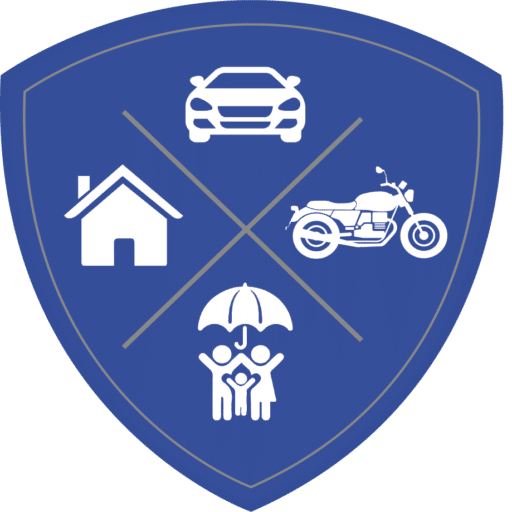
Beginners Guide to Homeowners Insurance
Having Homeowners insurance is a necessity because it protects your home and possessions from damage and theft. Your mortgage company will likely require the borrowers to have insurance coverage for the full or fair value of a property (usually the purchase price) and won’t make a loan or finance a residential real estate transaction without proof of it.
What a Homeowner’s Policy Provides
Although they are infinitely customizable, a homeowner’s insurance policy has certain standard elements that provide what costs the insurer will cover.
Damage to the Interior or Exterior of Your House
In the event of damage due to fire, hurricanes, lightning, vandalism or other covered disasters, your insurer will compensate you so your house can be repaired or even completely rebuilt. Destruction or mutilation from floods, earthquakes, and poor home maintenance is generally not covered and you may require separate riders if you want that type of protection. Freestanding garages, sheds or other structures on the property may also need to be covered separately using the same guidelines as for the main house.
Clothing, furniture, appliances, and most of the other contents of your home are covered if they’re destroyed in an insured disaster. You can even get “off-premises” coverage, so you could file a claim for lost jewelry, say, no matter where in the world you lost it. There may be a limit on the amount your insurer will reimburse you, however. According to the Insurance Information Institute, most insurance companies will provide coverage for 50% to 70% of the amount of insurance you have on the structure of your home.
Personal Liability for Damage or Injuries
Liability coverage protects you from lawsuits filed by others. This clause even includes your pets! So, if your dog bites your neighbor, Doris, no matter if the bite occurs at your place or hers, your insurer will pay her medical expenses. Or, if your kid breaks her Ming vase, you can file a claim to reimburse her. And if Doris slips on the broken vase pieces and successfully sues for pain and suffering or lost wages, you’ll be covered for that, too, just as if someone had been injured on your property.
Off-premises liability coverage often doesn’t apply for those with renter’s insurance.
While policies can offer as little as $100,000 of coverage, experts recommend having at least $300,000 worth of coverage, according to the Insurance Information Institute. For extra protection, a few hundred dollars more in premiums can buy you an extra $1 million or more through an umbrella policy.
Different Types of Homeowners Coverage
All insurance is definitely not created equal. The least costly homeowners insurance will likely give you the least amount of coverage, and vice versa.
In the U.S. there are several forms of homeowners insurance that have become standardized in the industry; they are designated HO-1 through HO-8 and offer various levels of protection depending on the needs of the homeowner and the type of residence being covered.
There are essentially three levels of coverage:
Actual cash value:
Actual cash value covers the cost of the house plus the value of your belongings after deducting depreciation (i.e., how much the items are currently worth, not how much you paid for them).
Replacement cost:
Replacement value policies cover the actual cash value of your home and possessions without the deduction for depreciation, so you would be able to repair or rebuild your home up to the original value.
Guaranteed (or extended) replacement cost/value:
The most comprehensive, this inflation-buffer policy pays for whatever it costs to repair or rebuild your home—even if it’s more than your policy limit. Certain insurers offer an extended replacement, meaning it offers more coverage than you purchased, but there is a ceiling; typically, it is 20% to 25% higher than the limit.
Some advisors feel all homeowners should buy guaranteed replacement value policies because you don’t need just enough insurance to cover the value of your home, you need enough insurance to rebuild your home, preferably at current prices (which probably will have risen since you purchased or built).
What Isn’t Covered by Homeowners Insurance?
While homeowner’s insurance covers most scenarios where a loss could occur, some events are typically excluded from policies, such as natural disasters or other “acts of God,” and acts of war.
Live in a flood or hurricane area? Or an area with a history of earthquakes? You’ll want riders for these or an extra policy for earthquake insurance or flood insurance. There’s also sewer and drain backup coverage you can add on, and even identity recovery coverage that reimburses you for expenses related to being a victim of identity theft.
To learn more about getting the right coverage for your needs, give the Nickerson Insurance Agency a call today!


